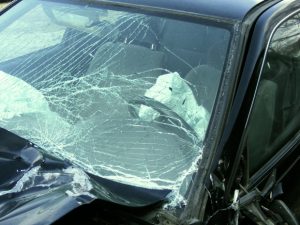Comparative negligence is the legal theory that a plaintiff is at least partially to blame for his/ her own injuries. In some states, that fact alone can prohibit a person from collecting any damages whatsoever (pure contributory negligence). In other states, a plaintiff’s own negligence can’t be more than the negligence of other parties (modified comparative fault). In Florida, which follows a pure comparative negligence standard, any amount of comparative negligence won’t bar the claim, but it will proportionately reduce damages (per F.S. 768.81).
Recently, the South Carolina Supreme Court weighed a case that asked whether the doctrine of comparative negligence applied in a crashworthiness product liability lawsuit against a vehicle manufacturer. That state follows a modified comparative fault model.
Although this is an out-of-state case, it’s worth examining because state supreme courts will often consider the rulings of sister courts in weighing similar circumstances. In this case, the court ruled that comparative negligence does not factor in a crashworthiness case. Further, public policy in that state doesn’t prohibit a plaintiff who was allegedly intoxicated at the time of a crash from bringing a claim of crashworthiness against the manufacturer of the vehicle.
According to court records, plaintiff and his friend were driving around a county in South Carolina in a 1987 pickup truck in November 2012. Evidence tends to indicate the pair had smoked synthetic marijuana earlier that morning. While driving, plaintiff approached an intersection with a stop sign. Plaintiff failed to stop, pulling directly into the path of a truck towing a horse trailer. Upon impact, the pickup truck burst into flames.
Passenger died as a result of the fire. Plaintiff driver suffered severe burns to 80 percent of his body.
Plaintiff filed a federal lawsuit against the vehicle manufacturer, alleging a defect in the design of the truck (specifically, the gas tank had been placed on the outside of the truck’s frame), cause the fire. He sought damages only for his severe burn injuries – not the other injuries he sustained as a result of the actual crash.
Defendant vehicle manufacturer filed a motion for summary judgment, arguing plaintiff should not be allowed to recover damages because he violated state law by driving while impaired. Alternatively, vehicle manufacturer argued plaintiff’s comparative negligence should limit his recovery.
The U.S. District Court for the District of South Carolina certified a question to the state supreme court, asking whether:
- Does comparative negligence apply in a crashworthiness claim where plaintiff asserts strict liability and breach of warranty and seeks damages only related to enhanced injuries?
- Does the state’s public policy prohibit drunk drivers or impaired drivers from recovering damages in a crashworthiness case that asserts strict liability and breach of warranty?
The court answered “no” to the first question, finding comparative negligence is not applicable in such a case. The court also answered “no” to the second question, despite noting that a number of other states do allow evidence of a driver’s impairment to be considered in such cases. The court noted “a minority” of state supreme courts that had considered the issue ruled plaintiff’s negligence in driving was not relevant to the proximate cause of enhanced injuries in a defective vehicle lawsuit. The state court sided with those courts.
Call Associates and Bruce L. Scheiner, Attorneys for the Injured, at 1-800-646-1210.
Additional Resources:
Donze v. General Motors, May 17, 2017, South Carolina Supreme Court
More Blog Entries:
Study: Traumatic Facial Injuries Prevalent Among Elderly Due to Nursing Home Falls, April 20, 20917, Product Liability Lawyer Blog
 Florida Injury Lawyer Blog
Florida Injury Lawyer Blog





